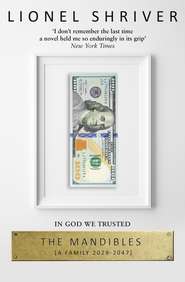По всем вопросам обращайтесь на: info@litportal.ru
(©) 2003-2024.
✖
Ordinary Decent Criminals
Автор
Год написания книги
2018
Настройки чтения
Размер шрифта
Высота строк
Поля
“So were you one of the lads?”
Farrell turned and didn’t recognize her at first: she was on the wrong side of the bar. Sweet Jesus, she worked here. Farrell felt immediately he’d made a mistake, and wondered why he’d come. Idle curiosity, he supposed, since this was the only plan for the evening whose sequence he couldn’t quite foretell, while Shearhoon’s tale here, for example, was strictly pub liturgy. He had liked that he couldn’t write her lines. But now he could fill them in easily enough—she was another one of those NORAID bims from Boston with Irish ancestors. How exciting, working in a Republican club with the hard men—
Farrell rubbed his face. “No, my dear, I was not one of the lads. Disappointed?”
“Hardly.”
Right answer; he would treat her at least to the story. “That was the day the British interned thirteen activists from the leadership of the PD. Dragged out of bed without time to wash their teeth. Searches all morning. The Falls was roiling. Whole families on the streets.”
“Sounds like quite a party,” said Estrin.
Of course it would to you, Farrell swiped, but had to admit, “It was. Though for me in ’72 every day was a party.”
“Meaning your youth, or the festivities?”
“Talisker!” cried Duff.
“Closer,” Farrell explained, “to a premature old age.”
Estrin shook her head. “A malt’s a waste on a bender.”
“Low as I ever sank, I never drank less. A matter of principle.”
“Style,” she corrected. “There’s a difference. So what possessed you to climb on top of that bus?”
“To tell the mothers not to go inside.”
“Why?”
“Strategy, my dear. Those soldiers had been trained for snipers, but were stymied by prams. They could plow up the barricade if it were manned by lads, but not if they were two years old. So I said, Bring up the prams! Best front line ever invented.”
“What happened?”
“I fell off the bus.”
“On a pram!” Shearhoon cried.
“You can imagine”—Farrell smiled—“this argued poorly for my strategy.”
Through their laughter Estrin asked, “Was it really funny? At the time?”
“No,” Farrell conceded. “Because if I’d been sober I could have changed what happened.”
“You do think a lot of yourself.”
“It doesn’t matter what I think of myself,” he dismissed impatiently. “The point is, I was right. The Provies moved in, swaggering like Charles Bronson, and everyone bloody well ‘made way for the lads.’ Prams—better than armored tanks!—pulled into the estates, and the Falls went empty save these yokels with Armalites, who braced on the hip and opened fire. You should have seen those soldiers’ faces light up. They were delighted. Now they understood their parts: O.K. Corral. They burrowed down on the pavement and slipped behind buildings and trained their sights: hell, you’d seen this clip before, you could turn it off.”
“And where were you?”
“Curled by the bus, just waking up, luckily on the Falls side, and desperate to take a piss. That, my girl, is the stuff of real history.”
The club became crowded, and Estrin was busy at the taps. More of Farrell’s acquaintances—he would consider them no better; in fact, he thought of himself as having no friends—rabbled to the bar, gripping his shoulder, blattering out tales. Their favorites were from his drinking days, extolling a fame that amounted to a medical achievement. “Aye, and I watched him myself knock back five brandy-and-ports the next morning, and then, steady as you please, strolls into the UDA and asks for a calendar!” Duff Shearhoon was in his element, for as most people will who prefer spinning yarns to living more of them, Duff maintained his old favorites in impeccable detail, like a man who, unable to afford new clothes, keeps his small wardrobe freshly laundered.
Farrell fought back a yawn. It struck him, amid the bawdy back-clapping, red faces leaning to his stool, how he might have longed for such a scene at seventeen—lonely and gangling, turning from the Church but with nothing to replace it, inward and socially inept, not even much of a drinker yet; full of ideas he could only put in exalted and therefore ridiculous form; to others, unpleasantly adult. No—Farrell looked around—this was adulthood: porter spilling on the floor, the laughter half relief there was something, anything, to say tonight. Back then he’d have lapped it up, and why had none of these big rowdy men gathered around him in the days he had bad acne? How reliably, even when you did get what you wanted, it was hopelessly belated—parts on order years ago arriving only once you’d sold the car. Farrell’s whole life was too late; he pictured Jesus rattling his screen door calling, “Mr. O’Phelan! Sir! We’ve your serenity in, so sorry for the delay!” and Farrell doesn’t answer because he’s dead.
Serenity, uch, just as well.
Estrin returned with his wine, though she could barely find room for the glass among the complimentary whiskeys he didn’t want. Less arrogant, he might have prepared a look of embarrassment for when their eyes met, but Farrell being Farrell, he let his boredom show instead.
He followed her through the cracks in his retinue. The dogs-bodies were chatting her up. Most Americans weren’t much at banter, so he enjoyed the easy reflex with which she kicked remarks back, a goalie defending against an inferior team. He wondered which of these willicks she was fucking.
Farrell ducked out of his party; they could tell Farrell O’Phelan stories better without him. The obligations of accuracy only rained on their parade.
“You seem quite popular here,” he said in her ear.
“I know,” she said with a funny despair. “Listen, I’ve got to wash up some of these pints, because we’ve run out again and I’ve told Kieran, just buy some more, but no-o—I swear I could run this bar by myself if they just laid in more glasses, but instead they hire a second bartender every night—typical false economy. Anyway, want to run back with me? Malcolm!” she shrilled over the crowd as only an American could. “Cover the bar!”
They were both relieved at the brief quiet of the back kitchen.
“You know it’s funny, but I’m tired of people liking me? My boyfriend in Berlin, it drove him wild. We’d go to a party and he’d sulk in the back while I’d get on with his friends; they’d all switch to English just for me. Pretty soon he started thinking of excuses why we couldn’t go. Everybody likes Lancaster—he used to say that all the time. More and more caustic. Dieter didn’t like me himself; no, he detested me in the end …”
The rate at which she washed glasses was astounding, though this intimate a proximity to a dishrag made the sweat break out on Farrell’s hands.
“You prefer to be detested?”
“It’s more of an accomplishment. This liking business, it just seems a trick: make a few jokes, preferably at your own expense; be attentive, don’t talk too long; confide only to the extent that you flatter, but never, never ask for sympathy, for anything, act as if you don’t care if they like you, which is the key, but still just a gambit— Oh, there are plenty of methods, and—” She looked up from the sink. “I’m not employing any of them at the moment.”
“No, if I’m to find you despicable, you’ll have to do better than this.”
“But have you any idea the number of people who’ve liked me now, all over the world? My God, I’m getting so when I take the train down to Dublin I try to take up the seats around me with my luggage, not because I don’t want company exactly, but I don’t want to compulsively ingratiate myself one more time. It’s humiliating, it’s obsequious, and then they want to keep in touch and everything. The pockets of my jackets are filled with ticket stubs scribbled with the addresses of strangers; I don’t remember who half of them are. So I don’t find likableness a particularly likable quality anymore. It’s still an expression, if competent, of the desire to please. Me, I admire people who are obstreperous, inconsiderate, abusive, and nonplused. Card-carrying assholes.”
“Spot on,” said Farrell. “I’m your man.”
“Not so far. You’re fucking polite. Why don’t you tell me to shut up?”
“You’re amusing me.”
“See,” she went on, “I ask myself: How many of these fuckers would like me with running sores? Really, I ask that like a mantra now: Who’s going to like me with running sores? I’m serious and you’re laughing.”
“I can see how you got this job.”
“Why?”
“Because you are likable. It’s sad, you can’t help it.” He put his hand on her arm. “I like you. And I hadn’t intended to.”
“Then why the hell did you come here?”
“Would you believe I needed a drink?”











